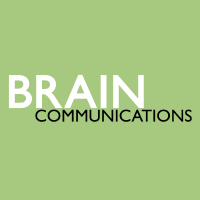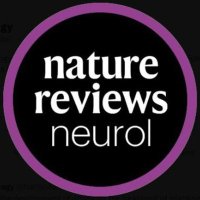
Charles Marshall
@charl_marshall
Professor of Clinical Neurology @preventiveneur1, Consultant Neurologist @NHSBartsHealth. Clinical Director for Dementia @NHSLdn_CN
ID: 3532138277
03-09-2015 08:29:15
630 Tweet
947 Followers
496 Following

The SLaM Brain Health Clinic now published in BJPsych Open here doi.org/10.1192/bjo.20… Centre for Healthy Brain Ageing, KCL HealthTech Research Centre in Brain Health Dag Aarsland Prof Clive Ballard Institute of Psychiatry, Psychology & Neuroscience NHS Maudsley NIHR Maudsley Biomedical Research Centre (BRC) Ageing Research KCL Royal College of Psychiatrists Old Age Psychiatry 🌈 Alzheimer's Society Alzheimer's Society For Researchers Research at ARUK Summary 🔽



Talaei et al. report shared genetic variants between lung function and cognitive function, yet the links do not fully explain the association between lower adult lung function and poorer cognition or dementia risk. Read at: buff.ly/41Yza21 Wolfson Institute of Population Health Centre for Preventive Neurology




Congrats Alvar Paris Great to see this out

Having depression is known to increase a person’s risk of developing #dementia. But Barts Charity supported research led by Professor Charles Marshall at the Centre for Preventive Neurology, shows how depression might be both a risk factor for, and an early sign of dementia,


🚨So delighted to see this work looking at the genetic overlap between depression symptoms and Alzheimer’s disease now published in Nature Mental Health Springer Nature🚨 Read the paper here: 👉 nature.com/articles/s4422…

Here is a link to our most recent newsletter, with a really great blog by a member of DeNPRU's Patient and Public Experience Group, on working with clinicians, academics, and policy and charity representatives at our two-day dementia prevention workshop. denpru-qmul.nihr.ac.uk/wp-content/upl…

Come and do a PhD on ultra low field portable MRI in memory clinic with myself and the amazing Dag Aarsland František Váša & Steve Williams. Please share widely, closing date 14th Feb: kcl.ac.uk/study-legacy/f… Centre for Healthy Brain Ageing, KCL NIHR Maudsley Biomedical Research Centre (BRC) Dementia Researcher

Our reflections on Moving towards meaningful patient and public engagement in NIHR PRU in Dementia and Neurodegeneration QM, with Dr Clarissa Giebel 🇪🇺 🇩🇪 Ruth Dobson Jo Brown rdcu.be/d9rEL

New research, born out of community engagement work, shows that the symptoms people report prior to receiving a dementia diagnosis vary across ethnic groups. Find out more: qmul.ac.uk/media/news/202… Barts and The London, Queen Mary Charles Marshall Alzheimer's Society




🚨Fantastic job opportunity for neurology trainees Neurology Trainees Neurology Clinical Lecturer post in Dementia with us Centre for Preventive Neurology Wolfson Institute of Population Health Barts Health now open to applications! Please DM me for info and to discuss oriel.nhs.uk/Web/PermaLink/…



Just out in Arquivos de Neuro-Psiquiatria. Pros and cons of antiamyloid therapies for Alzheimer's disease. Opinion papers by Professors Jonathan Schott, Charles Marshall, Ricardo Nitrini and Adalberto Studart Neto.




